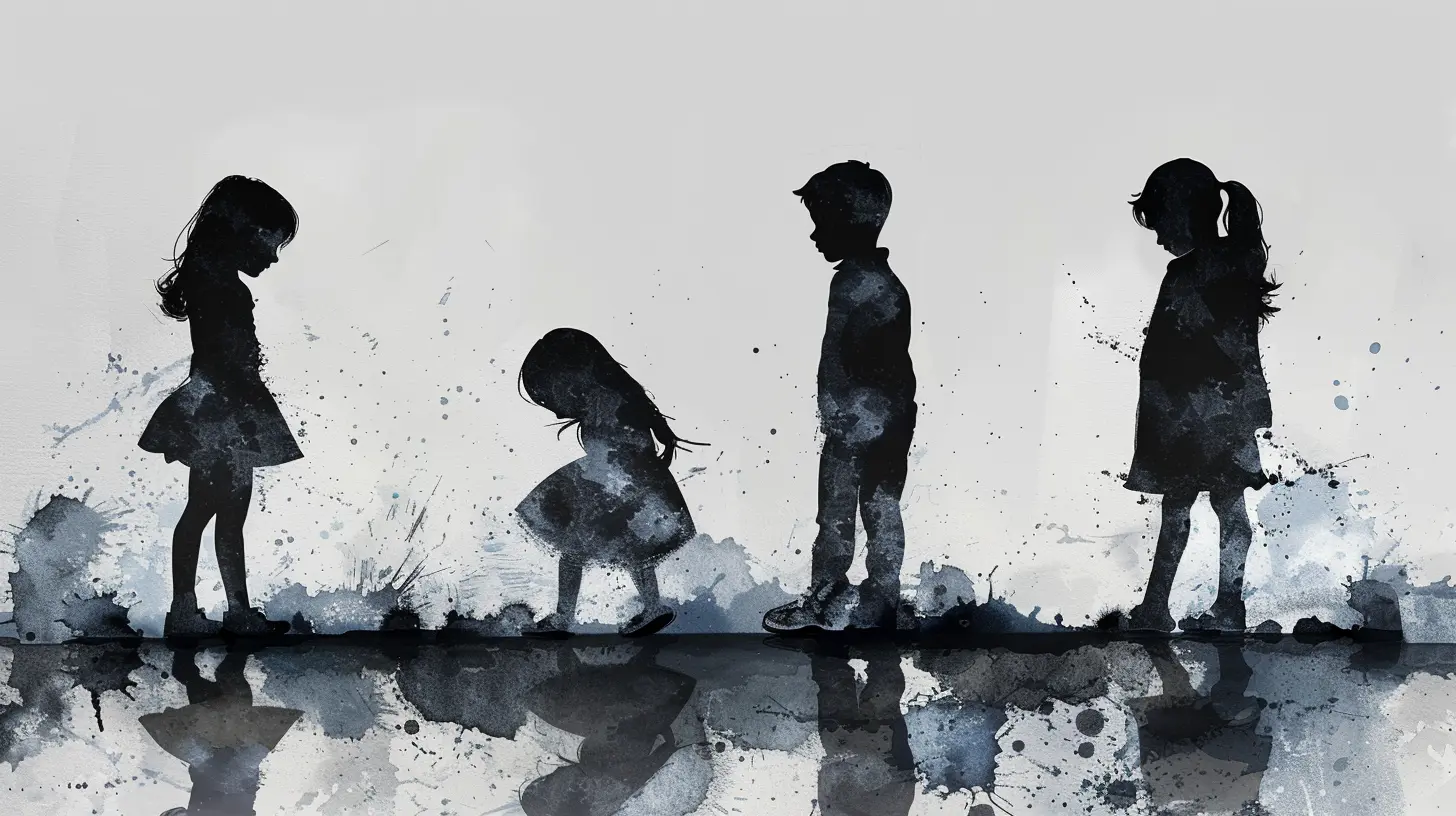Teaching Children to Deal with Disappointment and Setbacks
21 July 2025
Life is full of ups and downs, wins and losses, sunny days and rainy ones. As much as we’d love to give our children a smooth path with no bumps, bruises, or broken hearts, we know that disappointments and setbacks are part of the journey. What matters most isn't avoiding them—it's teaching our kids how to bounce back, grow stronger, and face the next challenge with confidence.

Why Teaching Resilience Early Matters
Let's be real—kid life may look simple, but it’s not without drama. From not getting picked for the team to flunking a test or being left out of a party invite, disappointment hits hard. And if they don’t learn how to handle those bumps when they’re young, they’ll struggle to deal with the bigger waves of adulthood.Think of life skills like a muscle. The sooner kids start working it out, the stronger and more flexible it becomes. Teaching children resilience—the ability to recover and push forward despite setbacks—is like giving them emotional armor. It won’t keep the bad stuff away, but it helps them face it head-on.

Understanding What Disappointment Looks Like for Kids
Disappointment doesn’t always show up as tears or tantrums. Sometimes it’s a quiet withdrawal, anger, or self-doubt. We can’t help our kids cope if we don’t recognize the signs.Ask yourself:
- Is my child acting out more than usual?
- Are they suddenly avoiding certain activities?
- Do they seem more anxious or down?
Kids don’t always say, "I’m disappointed." But their behavior often says it for them.

Normalize Disappointment Without Sugarcoating
One of the best things we can do as parents is to let our kids know that feeling disappointed is totally normal. It’s not shameful or something to hide. It’s just part of life. But here’s the key—it’s not the end of the world either.Try saying things like:
- "I understand you're upset. It really stinks when things don’t go the way we want."
- "I felt the same way when I didn’t make my school play. It’s OK to feel sad."
You’re not minimizing their feelings, and you’re not dramatizing them either. You’re simply helping them label their emotions and see that they’re not alone.

Help Them Feel the Feels
So often, we rush in to rescue our kids from sadness or frustration. But here’s the truth—discomfort isn’t the enemy. Growth happens right after the sting. It’s okay to let them sit with their feelings for a bit.Encourage them to talk, write in a journal, draw, or even just cry. Their feelings are valid. Let them feel without judgment. That builds emotional awareness and healthy coping.
Shift the Focus: From Outcome to Effort
Kids are naturally outcome-focused. Did I win? Did I get an A? Did I succeed?That’s where we step in.
Teach them to value effort, progress, and grit over just "winning." Celebrate the hustle, not just the result.
Instead of saying:
- “You didn’t win, but that’s okay.”
Try something like:
- “I saw how hard you worked—your dedication makes me proud.”
When kids learn to focus on the process, they become more motivated to try again—even if they failed the first time.
Share Your Own Setbacks
Parenting superhero tip: Be vulnerable.When you talk to your kids about your own challenges and missteps, they see that even adults don’t have it all together. It makes failure less scary and more human.
Say things like:
- “I didn’t get that job I wanted last year, and I was really disappointed. But it helped me figure out what to do next.”
Your stories show them how to bounce back rather than break down.
Foster a Growth Mindset
Ever heard of Carol Dweck’s "growth mindset"? It’s a game-changer for raising resilient kids.Teach your child that skills and intelligence can be developed through effort and learning. Replace “I can’t” with “I can’t YET.”
How?
- Praise perseverance, not perfection.
- Teach the power of “yet.”
- Celebrate mistakes as learning opportunities.
Instead of saying:
- "You're so smart."
Say:
- "You worked really hard on that. I’m proud of your effort."
This subtle shift rewires how kids see challenges—not as threats, but as chances to grow.
Encourage Problem-Solving
When things go wrong, don't just swoop in and fix it. I know, it's tempting. But deep down, we know they need to learn how to think through solutions.Ask them:
- “What do you think you could do next time?”
- “Is there another way to try this?”
- “What might help you feel better right now?”
By guiding them to their own answers, you’re teaching them to take control—one small problem-solving step at a time.
Avoid Toxic Positivity
You've probably heard things like:- “Everything happens for a reason.”
- “Just stay positive!”
While well-meaning, these phrases can feel dismissive. They gloss over real pain and pressure kids to suppress their emotions.
Real growth comes from honesty, not forced smiles. Be supportive, but stay grounded in reality. Encourage a hopeful outlook, not fake cheerfulness.
Model Healthy Reactions to Setbacks
Kids are always watching us. If we melt down when things go wrong, guess what? They will too.But if we say:
- “Wow, that didn’t go as planned—but I’ll figure it out.”
They learn that setbacks aren’t catastrophes—they’re just curveballs.
So take a deep breath. Show them how to stay calm, stay curious, and keep moving forward.
Build a Toolbox of Coping Strategies
Every child is different, so help them find what works for them when handling disappointment. Some helpful tools include:- Deep breathing and mindfulness
- Positive self-talk ("I’m doing my best")
- Physical activity (like walking or dancing it out)
- Talking it out with someone they trust
- Drawing, journaling, or creative expression
Offer your child options and let them pick what feels right. Over time, they’ll learn to reach for these tools on their own.
Teach Gratitude Without Guilt
Gratitude doesn’t mean ignoring pain—it means recognizing what’s still good, even amid the bad.After a disappointment, you might gently say:
- “It’s okay to feel really sad about this. And when you’re ready, let’s think about something today that we’re thankful for, too.”
This approach helps balance their perspective without making them feel like they shouldn’t be upset.
Reinforce That Failure Isn’t Permanent
One of the biggest fears that tags along with disappointment? The belief that it’s forever. That they’ll always lose, always mess up, never succeed.Our job? To remind them that failure is just temporary. It’s a detour, not a dead end.
Tell them:
- “Every successful person has failed—many times. What matters is that they kept going.”
Failure is feedback. It’s how we learn, pivot, and try again smarter.
Celebrate the Comebacks
When your child pushes through a tough experience—even in a small way—celebrate it. Show them that resilience is just as praise-worthy as talent, if not more.Say:
- “You didn’t give up. That took courage.”
- “You stayed calm even though you were upset. That’s growth.”
These moments are their emotional wins. Celebrate them like trophies.
Be Their Anchor, Not Their Engine
You don’t need to fix every problem or shield them from every disappointment. You just need to be a steady presence. Be their safe space. Be the one who believes in them, even when they don’t believe in themselves.Let them drive the recovery. You're just helping steer when needed.
Final Thoughts: Raising Resilient Kids, One Setback at a Time
No parent wants to see their child hurting. But disappointment isn’t the end of the road—it’s a chapter in a much bigger story. Every setback is a chance for growth. Every tear is a seed of strength.By teaching our children how to handle life’s stings with heart and hope, we’re not just preparing them for success—we’re preparing them for life. And that, my friend, is the true win.
all images in this post were generated using AI tools
Category:
Emotional IntelligenceAuthor:

Zelda Gill
Discussion
rate this article
1 comments
Paige Gill
Life’s little hiccups are just plot twists in the grand adventure of parenting! Equip your mini-me with a cape of resilience and a sprinkle of humor—because every disappointment is just a setup for an epic comeback!
August 3, 2025 at 2:30 AM

Zelda Gill
Absolutely! Embracing hiccups as plot twists helps children build resilience and find humor in challenges. It's all about turning setbacks into comebacks!


